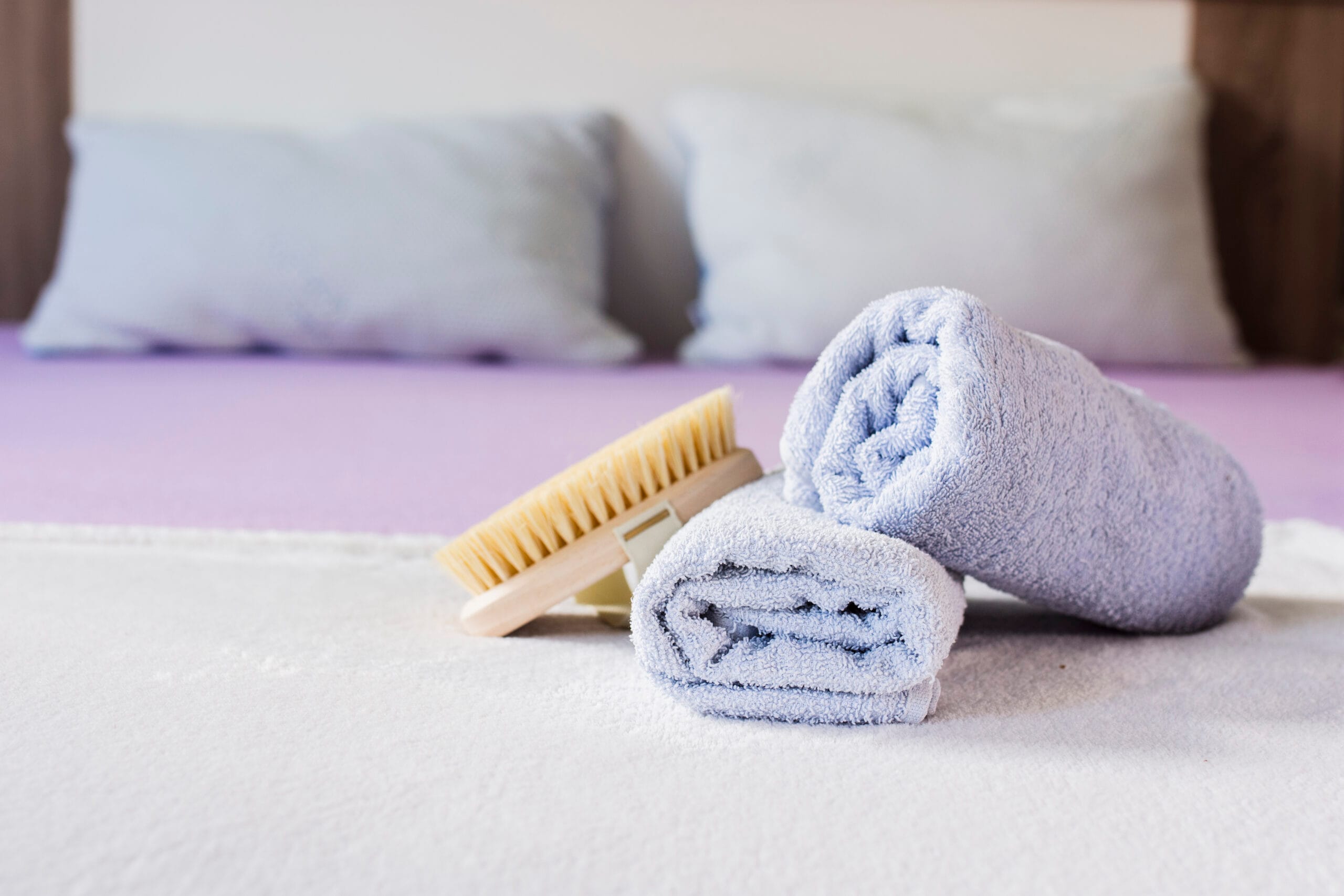Keeping your linens clean and fresh doesn’t have to be a mystery. We consulted an expert team from itsGLO Cleaning, a leading Toronto-based cleaning company, to bring you the most practical tips on maintaining hygiene and maximizing the lifespan of your bed sheets and towels.
Keeping your bed sheets and towels clean isn’t just about appearances; it’s about maintaining hygiene and preventing allergens, bacteria, and odors. But how often should you wash them? The answer depends on factors like personal habits, material type, and usage frequency. In this guide, we’ll break down the ideal washing schedule for bed sheets and towels and why it matters.
Why Washing Bed Sheets and Towels Regularly is Important
Over time, bed sheets and towels accumulate sweat, body oils, dead skin cells, dust mites, and bacteria. Neglecting regular washing can lead to unpleasant odors, skin irritation, and even allergies. Washing them on a schedule not only ensures freshness but also extends their lifespan.

How Often Should You Wash Bed Sheets?
Experts recommend washing your bed sheets weekly under normal circumstances. However, personal habits, climate, and health conditions may require adjustments. Below is a table showing how often different types of bed sheets should be washed:
| Type of Bed Sheet | Recommended Washing Frequency | Notes |
| Cotton | Weekly | Breathable and durable; ideal for frequent washing. |
| Linen | Every 1-2 weeks | More delicate; avoid overwashing to maintain texture |
| Silk | Every 2 weeks | Requires delicate handling and mild detergent. |
| Flannel | Weekly | Holds warmth but can trap more sweat and dust, necessitating regular washing. |
| Bamboo | Weekly or as needed | Ideal for allergy sufferers; wash regularly to maintain hypoallergenic properties. |
How Often Should You Wash Towels?
Towels absorb moisture and are breeding grounds for bacteria if not dried properly. Regular washing keeps them fresh and hygienic. The frequency depends on how you use them and the material type.
| Type of Towel | Recommended Washing Frequency | Notes |
| Bath Towels | Every 3-4 uses | Hang to dry between uses to prevent mildew buildup |
| Hand Towels | Every 2 days | Higher contact with hands means they gather bacteria more quickly. |
| Washcloths | After each use | Wash immediately due to contact with body oils and skincare products. |
| Kitchen Towels | Daily or after heavy use | Comes in contact with food and surfaces; wash to avoid cross-contamination. |
Best Practices for Washing Bed Sheets and Towels
To get the best results, follow these tips:
- Use the Right Water Temperature
- Bed Sheets: Use hot water (60°C/140°F) for cotton and polyester blends to kill bacteria. For delicate fabrics like silk, use cold water.
- Towels: Wash towels in hot water to remove bacteria, especially if they smell or feel damp.
- Don’t Overload the Washer
Stuffing too many items into the machine prevents proper cleaning. Always leave enough room for water and detergent to circulate.
- Use the Right Detergent
Opt for mild detergents for bed sheets, especially delicate fabrics like silk. For towels, use a detergent with odor-fighting properties.
- Add White Vinegar for Freshness
For towels, adding a cup of white vinegar during the rinse cycle helps remove odors and restore absorbency.
- Avoid Fabric Softeners
Fabric softeners can coat fibers and reduce the absorbency of towels. Instead, use dryer balls to keep towels fluffy.

What Happens If You Don’t Wash Regularly?
Neglecting to wash bed sheets and towels can lead to:
- Skin Irritation: Built-up oils, sweat, and bacteria can clog pores, leading to breakouts or rashes.
- Allergies: Dust mites thrive in unwashed sheets, exacerbating allergies and asthma.
- Odor and Mold: Towels that aren’t cleaned or dried properly can develop mold and mildew, leading to unpleasant smells.
- Shortened Lifespan: Dirt and sweat can wear down the fibers in sheets and towels, reducing their durability over time.
FAQs
What temperature should I use to wash bed sheets?
Hot water (60°C/140°F) is best for killing bacteria, but delicate fabrics may require cold water.
Can I use fabric softener on towels?
It’s better to avoid fabric softener for towels as it can reduce their absorbency. Use vinegar instead to keep them fresh.
How do I know when it’s time to replace my sheets and towels?
Replace bed sheets every 2-3 years and towels every 1-2 years, or when they lose softness or become frayed.

Investing time in a proper cleaning routine for your bed sheets and towels doesn’t just keep you healthy—it also saves you money in the long run. Regular washing prevents fabric wear and tear caused by the buildup of dirt and oils, helping your linens last longer. Plus, staying consistent with your care routine creates a cleaner and more inviting home environment, which can positively impact your mental well-being. With a little effort, you can enjoy the comfort and freshness of perfectly maintained linens every day.














